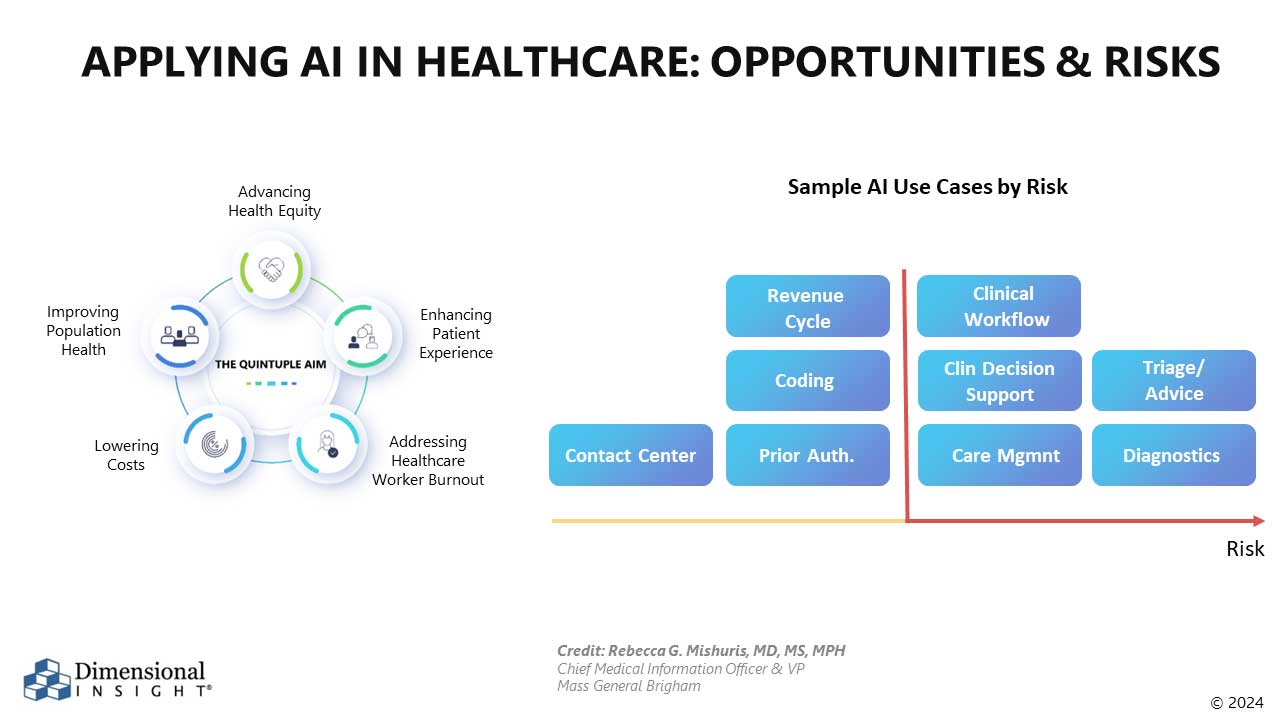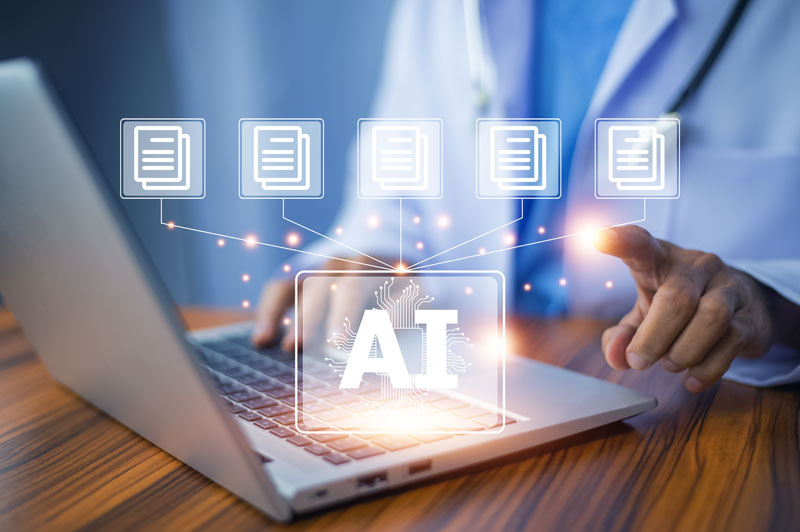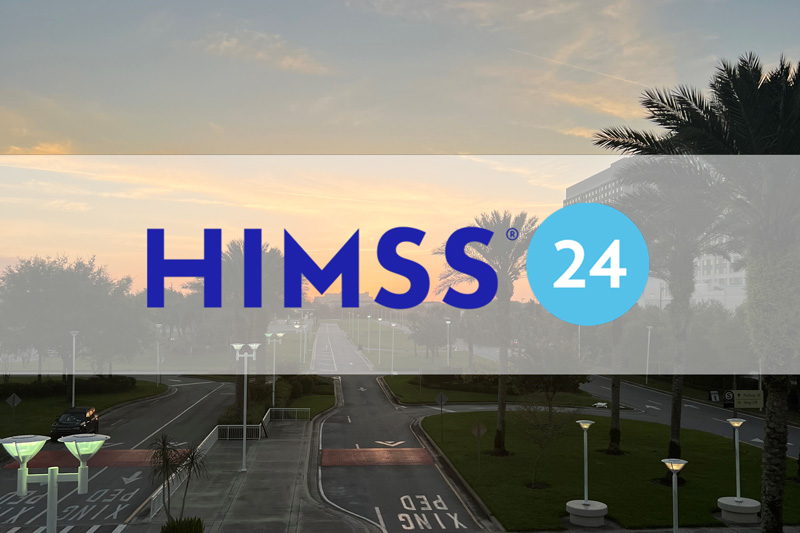In the rapidly evolving world of healthcare, the potential to harness vast amounts of data for improving patient outcomes has never been more apparent. In a recent New England HIMSS webinar, sponsored by Dimensional Insight, George Dealy and Josh Lovering delved into the practical applications and future possibilities of artificial intelligence (AI) in healthcare, providing a comprehensive overview of how AI can unlock actionable insights from complex data sets.
Understanding AI in healthcare
AI in healthcare encompasses two main branches: generative AI (Gen AI) and quantitative AI (Quant AI). While Gen AI focuses on creating new content and predictions from extensive data sources, such as internet content or specific domains like medical information, Quant AI specializes in making predictions based on algorithms and large data sets. Both play a crucial role in healthcare, from enhancing patient-provider interactions to making precise quantitative predictions.

Key applications and risks
AI’s applications in healthcare are vast, ranging from administrative efficiencies, such as forecasting patient wait times and staffing requirements, to clinical improvements, including reducing diagnostic errors and personalizing patient care. However, these applications come with inherent risks, particularly concerning patient safety and care quality. Rigorous validation against real clinical data is essential, especially for applications closely tied to patient outcomes.
The role of citizen data scientists
A significant development in the field is the emergence of the citizen data scientist, a role that combines domain expertise with technical skills to facilitate AI projects. These individuals play a pivotal role in identifying high-value opportunities, contributing subject matter expertise, and ensuring that AI systems produce relevant, actionable insights.
Case study: Forecasting emergency department wait times
In the webinar, George and Josh presented a detailed case study that showcased the application of Quant AI in forecasting wait times for an emergency department. By leveraging a combination of machine learning models, including gradient boosting and decision trees, the team was able to predict near-future wait times with remarkable accuracy. This predictive capability enables better staffing decisions and enhances the patient experience by reducing wait times.

Integrating Quant AI and Gen AI
Looking towards the future, the convergence of Quant AI and Gen AI holds immense promise for healthcare. This integration can lead to more dynamic and contextually relevant insights, further enhancing decision-making processes in healthcare organizations. By leveraging the strengths of both AI types, healthcare providers can achieve a deeper understanding of patient data, leading to improved care outcomes.
Advice
For healthcare organizations looking to implement AI, the following steps are recommended:
- Start with quality data: High-quality, curated data is the foundation of effective AI applications. Ensuring data integrity and relevance is crucial.
- Identify high-value applications: Focus on areas where AI can make a significant impact, such as improving patient outcomes, enhancing efficiency, and reducing costs.
- Foster a culture of innovation: Encourage the development of citizen data scientists within your organization by providing training and resources to blend domain expertise with technical skills.
- Adopt a collaborative approach: AI development is a team sport. Engage a diverse group of stakeholders, including data scientists, clinicians, and administrative staff, to ensure the successful implementation of AI projects.
- Embrace continuous learning: AI and machine learning are rapidly evolving fields. Staying informed about the latest advancements and best practices is essential for keeping your AI initiatives relevant and effective.
In conclusion, AI in healthcare offers unprecedented opportunities to improve patient care, enhance operational efficiencies, and drive innovation. By understanding the potential of AI, embracing a collaborative approach, and focusing on high-value applications, healthcare organizations can unlock the transformative power of AI to make smarter, data-driven decisions.
To learn more, please view the 1-hour webinar, “Decoding Healthcare Data with AI,” now on-demand.
- Solving Hospital CEOs’ Pressing Challenges With Analytics - April 15, 2024
- Navigating the Wellness Wave: Wine & Spirits Data Strategy - April 9, 2024
- Takeaways from HIMSS24 - March 26, 2024



